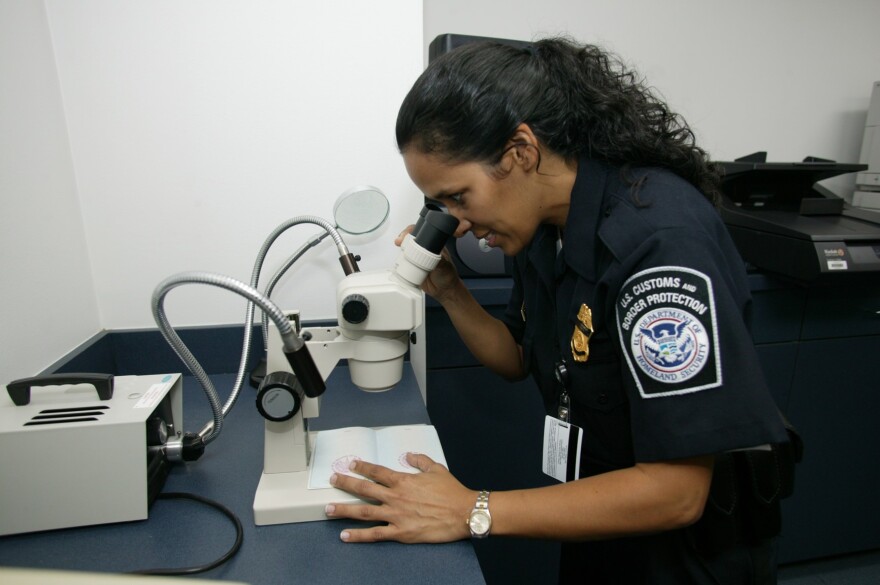This is Leslie VonHolten traveling through the High Plains of Kansas, with another HPPR Radio Readers Book Byte.
The books we have read so far for our rivers series have explored history and terrain, with the river serving as the path of travel. For Max McCoy’s Elevations, the travel was a deeper understanding of place and self. For Mark Twain, Huck Finn, and Jim, the river represented freedom—freedom from the past, both personal and as a nation desperately in need of moral change.
But Francisco Cantu’s memoir, The Line Becomes a River, complicates the role of the river. This time it is the Rio Grande, the highly politicized demarcation between Mexico and the United States.
Cantu tells us about his years working as a border patrol agent— the stories of his colleagues and the migrants he works with, the tragedies he witnesses, the anxiety and dreams he endures, his conversations with his Mexican-American mother, and his own turning point when he realizes he needs to change his life’s work.
For me this was a complicated and unexpected book. Cantu’s storytelling is clear and captivating. I was pulled in immediately. But in the beginning I was conflicted because the story was not as black and white as I’d expected. I had assumptions that I found myself holding onto.
Finally I had to take a step back. We’re all adults here, right? I mean, we know—we know—that the world is rarely black and white. That we live in a landscape of gray area, of nuance.
So I was challenged by Cantu’s sympathetic handling of the border agents. Lots of readers are. Yes, too many agents are brutal and lack basic human compassion for the people crossing the desert. But Cantu shows us that many people working in this area are indeed kind people, often saving lives when the desert becomes too formidable, delivering water and medical care to those who are lost, abandoned, exhausted, and on the brink of death.
But even so, the author has a change of heart and leaves his job. The second section of the book tells story of his friend, a man who is later deported. Cantu becomes his family’s advocate in court. It’s a heartbreaking story.
Although border enforcement is a power that nearly every nation-state flexes, Cantu makes the final point that our southern border has undergone an escalation of militarization and rhetoric that dehumanizes the immigrants. Which then begs the question: Can the border agents he works with, the kind and compassionate ones, can they really change the system from within? Is that even remotely possible?
The Line Becomes a River has been criticized from both sides of the issue: Some say Cantu is too sympathetic to the migrants. Others say he is too sympathetic to his fellow border agents. And then many Latinx writers have criticized the publisher, saying that immigrants themselves should be telling this story.
To his credit, Cantu agrees with this critique. We do need more voices from those who have crossed the border and navigated our sclerotic and poisoned immigration system. But compassionate, well-researched, and reflective stories, be they former border agent or immigrant, have a space in this topic.
This is Radio Reader Leslie VonHolten hoping you will join us in reading The Line Becomes a River by Francisco Cantu. It will give you a lot to think about. Find more at HPPR.org, or Like us on Facebook.









